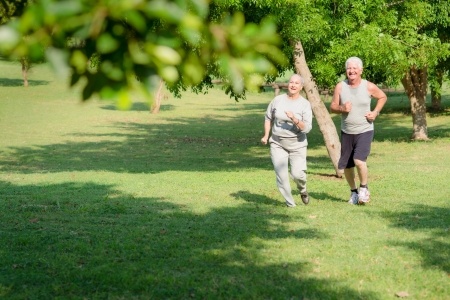Surprising Retirement Spots
Most American seniors and baby boomers want to retire in a place where they could relax and unwind as a reward for their years of hard work. Oftentimes, retirees dream of retiring at the Sun Belt, where they can enjoy playing golf or taking a relaxing walk in one of the many parks within the cities of the Sun Belt.
However, a recent study done by the National Institute on Retirement Security (NIRS) shows that some retirees are now considering retiring on places that are considered not popular. Even more surprising is that retirees of the present age are now trading their beach shorts for ear muffs, as they find themselves more comfortable on cold, snowy locations such as Wyoming, Alaska, and Minnesota.
According to the NIRS, one reason in this sudden change of trends is that these locations offer them financial stability. There are more working opportunities there and some cities even offer some benefits for retirees – a huge advantage for those who haven’t had the chance to save up enough money for their retirement.
An Alarming Change?
Nari Rhee, a research manager at the NIRS, mentioned that some state governments have become alarmed at this sudden change of trends. She notes that the federal government may be failing to provide the required benefits towards retirees, which lead to them finding greener pastures.
“We’re screwed”, as Rhee put it. She explains that this has become problematic as some seniors and retirees want to maintain their standard of living but are not able to due to them not being able to save money during their working years. Due to this, they choose to retire on places where they can work to provide for themselves and at the same time enjoy the benefits these cities have in store for them.
Another Problem
Rhee also notes that there is a huge number of baby boomers that have not laid out a proper plan for their retirement. The Employee Benefit Research Institute (EBRI), she notes, found out that 44 percent of baby boomers and Generation X people do not have enough money to cover even the most basic needs once they reach retirement age. This is a huge problem that needs to be addressed, Rhee adds.
Another survey done by EBRI shows that pre-retirees have little to no confidence that they will have enough money after they retire. This may be due to the rising unemployment rate and the poor economy growth the United States is currently experiencing.
The Reaction of State Governments
As mentioned earlier, the federal government is doing close to nothing to prevent this alarming problem. State governments are now taking action in order to provide a solution for this.
“States are increasingly concerned about this,” Rhee said. “We’re not seeing a lot of federal action. So some states are stepping in, saying, ‘What can we do to help increase savings?’”
The role of the states is important, Rhee says, because, currently, the private sector has little to no plans whatsoever for pre-retirees – and this spells trouble for them. Rhee states that making payments for health care and other retiree funds can provide a long-term solution for baby boomers later on.
A Hope for Future Retirees
Fortunately, state legislators are moving towards changing the way on how the private sector works. By pushing laws such as mandatory payment for retiree costs, etc., the state can help future retirees cover for all their possible expenses.
“If they act now, there is time for states to set up programs so workers who are in their 20s, 30s, 40s now will have a better outcome,” Rhee said.
Category: Get Aways




































